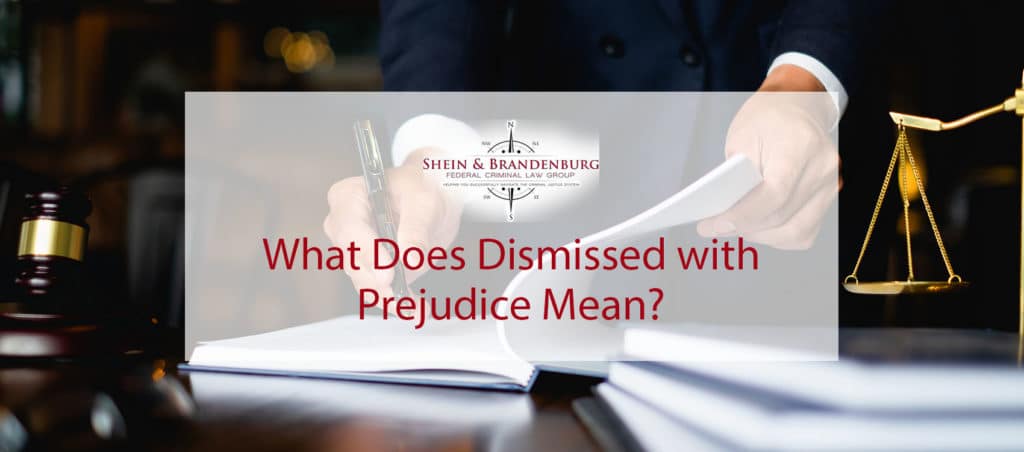Understanding the Term Dismissed with Prejudice
In 2018, the number of federal filing in United States district courts increased 8%, with 81,553 cases initiated. As a result, it should come as no surprise that the federal court system is overburdened with a large number of cases. In order to provide justice, courts must do whatever is necessary to avoid devoting too much time, cost, or energy to certain cases. One way to achieve this goal is by simply dismissing them. Below we will review the differences between dismissed with prejudice and dismissed without prejudice.
There are two types of dismissals — with or without prejudice. Many people have questions about the difference between these two types of dismissals, which we will explain below.
The Role of Prejudice in the Legal System
In a legal context, prejudice relates to dismissal decisions and refers to a decision being final and prohibited from being asserted in another court at any time in the future.
By labeling a case as “dismissed with prejudice,” a court is in short stating that it has formed an opinion about the case and based on its opinion, the case will not be heard at trial.
How a Case is Classified as Dismissed Without Prejudice
At any point in a case’s history, the prosecution can decide for a number of reasons to move for a case’s dismissal. A motion for dismissal can occur if the prosecution no longer has sufficient evidence to establish guilt or something else results in a case that will make it difficult to convict a person.
In these situations, a case will likely be dismissed as without prejudice, which means that charges can be reasserted in the future.
How a Case is Classified as Dismissed With Prejudice
Dismissals with prejudice are hardly ever voluntarily made by the prosecution. Sometimes, a criminal case might arise that contains a defect like a lack of a warrant or failure to provide a speedy trial or a violation of another Constitutional right, which can lead to a case being dismissed with prejudice.
Other times, there might be problems involved with variances that result in a dismissal with prejudice.
In making a decision to dismiss a case with prejudice, a court decides that the details surrounding a case are enough to conclude that the case will not have any future standing in a court of law. As a result, to be dismissed with prejudice, a court must determine that a case will always have a fatal flaw and that nothing can be done to remedy the matter.
The result of a dismissal with prejudice is that a case will be closed. This is because the Double Jeopardy Clause of the Fifth Amendment to the United States Constitution prohibits any person from being subject to the same offense twice.
Speak with an Experienced Criminal Defense Lawyer
If you are facing criminal charges, the experienced attorneys at the Federal Criminal Defense Center are prepared to do everything in their power to make sure that you have a strong case. Contact our law office today to schedule a free initial consultation.


